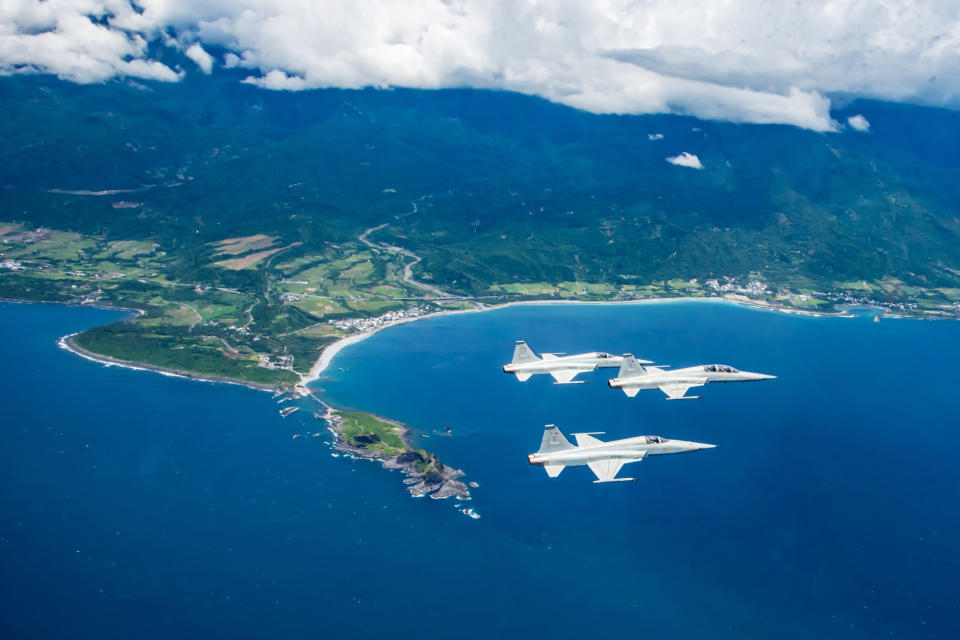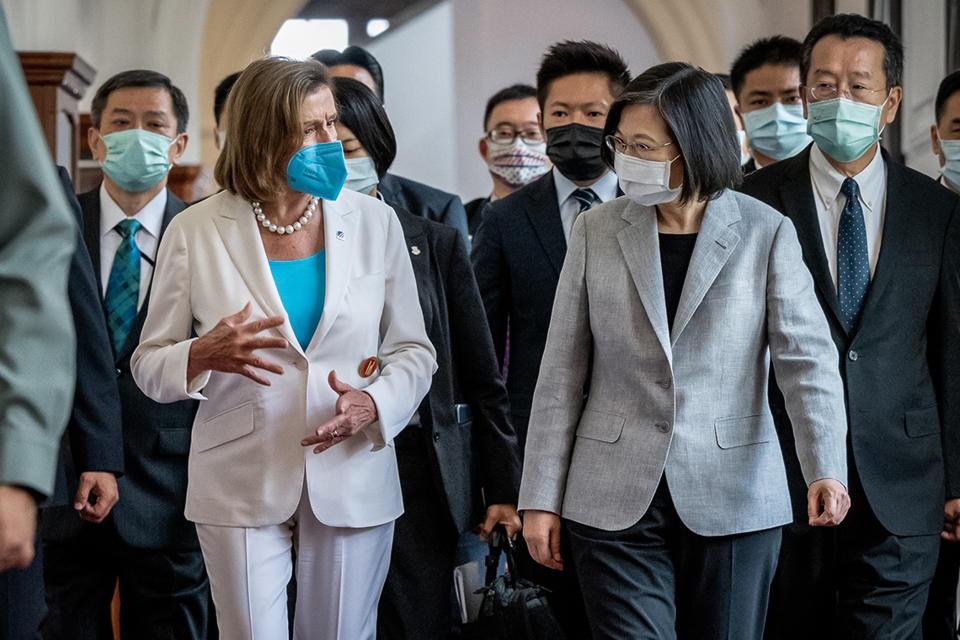Taiwan doesn’t see conflict as ‘imminent,’ but it’s preparing anyway
TAITUNG, Taiwan — Taiwan does not expect an attack from China any time soon, but that doesn’t mean it isn’t preparing for one.
The self-ruling democracy about 100 miles off the coast of China has been strengthening its defenses in the face of growing threats from Beijing, which claims the island as its territory. Though China says it seeks “peaceful unification,” it has not ruled out the use of force against the island, which rejects Beijing’s sovereignty claims.
“We are trying very hard to keep our rights here,” 1st Lt. Kai-Lin Chiang, 24, said in a visit to 7th Wing Air Base in Taitung, a city on the southeast coast.
Chiang said that it was an “honor” to be a pilot for Taiwan and that he was focused on becoming as skilled in the air as possible.
Though he thinks about the possibility of going to war “almost every day,” said Chiang, who graduated from the U.S. Air Force Academy in Colorado in 2021, “the only thing I can do is prepare myself and be stronger.”
Trainee pilots like Chiang spend a year learning how to fly before they go to other bases for three years of training in combat flying, after which they become full-fledged pilots. Many of them hope one day to fly the F-16 fighter jets sold to Taiwan by the U.S., the island’s most important international backer.

“We need to train them to be fearless. We need to train them to be better prepared,” said Flight Cmdr. Chia-Hsien Chao, 34, an instructor at the base who also graduated from the Air Force Academy.
Taiwan defense officials say a turning point was the trip in August by Nancy Pelosi, who as House speaker at the time was the most senior U.S. official to have visited the island in 25 years. China strongly opposed and condemned Pelosi’s visit, which it viewed as promoting Taiwan independence, and it responded after she left with live-fire drills that circled the island for the first time.
Since then China has stepped up its military activities around Taiwan, including almost-daily sorties toward the island. The planes are also crossing the median line, an unofficial boundary in the Taiwan Strait, more regularly.
Taiwan’s National Defense Ministry said Wednesday that as of 6 a.m. local time (6 p.m. Tuesday ET), it had detected 26 Chinese military airplanes, nine of which crossed the median line or entered Taiwan’s self-declared air defense identification zone, around the island in the previous 24 hours.
China also simulated an aerial and naval blockade around Taiwan and practiced precision strikes in exercises in April after Taiwanese President Tsai Ing-wen met with Pelosi’s successor, House Speaker Kevin McCarthy, in California.

Joseph Wu, Taiwan’s foreign minister, said most Taiwanese government officials share U.S. Defense Secretary Lloyd Austin’s assessment that war over Taiwan is “neither imminent nor inevitable.”
“We don’t see the threat as imminent, but the threat has been increasing. It is very apparent,” Wu said.
Taiwan has 210,000 active members in its armed forces, compared with China’s more than 2 million, but it aims to make the most of those numbers by improving defenses and intensifying training for troops and reservists. The island is extending compulsory military service for men from four months to one year starting next year, and it is pressing the U.S. to speed the delivery of 66 additional F-16s that Taiwan bought in 2019.
Pilots at the Taitung base expect the planes, which are seen as crucial to the island’s defense capabilities, to arrive in the next two years. They would increase Taiwan’s F-16 fleet to more than 200, one of the biggest in Asia.
China regularly expresses opposition to such arms sales, accusing the U.S. of interfering in China’s internal affairs and worsening tensions in the Taiwan Strait.
The U.S., which does not have official relations with Taiwan, has a long-standing policy of “strategic ambiguity” in how it would respond if China attacked Taiwan. The idea is to deter Beijing from invading and discourage Taipei from doing something — like declaring independence — that might provoke a military response from its neighbor.
President Joe Biden, however, has appeared to move away from strategic ambiguity by saying on several occasions that Washington would step in to defend Taiwan. Each time, the White House later said U.S. policy on the island had not changed.
Ultimately, however, Taiwan officials say they know the island has to be as prepared as possible to defend itself.
“If we are not willing or capable of defending ourselves, I think we don’t have any right to ask any other countries to help Taiwan,” Wu said.
This article was originally published on NBCNews.com

